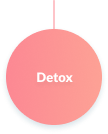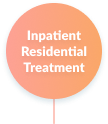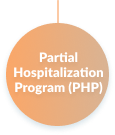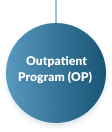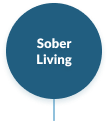Addiction Treatment Programs in California
Effective Recovery &
Aftercare Treatment
Our programs deliver evidence-based treatment & compassionate care, giving our clients the best possible environment to achieve lasting sobriety.
With excellent clinical staff, world-class programming, & a beautiful coastal location to explore, Renaissance Recovery is a premier destination for addiction recovery.
Our Evidence-Based Treatments
Our treatments are backed by clinical evidence and administered by highly skilled experts dedicated to addiction recovery.
With around-the-clock supervision, we provide a variety of advanced therapies and one-on-one care. Upon admission, our specialists sit down with each client to create a personalized treatment plan designed to meet their specific needs.

Adventure
Therapy

Holistic
Therapy

Dialectical Behavioral
Therapy (DBT)

Cognitive Behavioral
Therapy (CBT)

Dual
Diagnosis

Medication-Assisted
Treatment (MAT)

Aftercare & Career
Placement Programs
Transitioning from a treatment program back to everyday life can be hard if you don’t have the right support system in place.
Renaissance Recovery offers sober living & aftercare programs as well as a thriving alumni community to keep you plugged in & accountable long after treatment ends. We also understand the importance of stable employment in long-term recovery, & provide a career development program to help you land a job after leaving our program.
Does Insurance Cover
Addiction Treatment?
providers who provide up to 100% treatment coverage.
Substance Abuse Treatment in Orange County, California

Great weather
year round
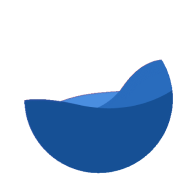
Nearby beaches
and state parks

Recreational outings
with sober community
Alcohol & Drug
Addiction Treatment
Alcohol and drug addiction affects millions in the US today, and can have serious physical, mental, and lifestyle complications if not treated properly. Our structured & comprehensive addiction treatment programs provide access to a comfortable & safe detox through our partners, and then we assist you in transitioning to our premier outpatient program.
During outpatient care, you’ll experience world-class care while receiving the tools & interventions you need to overcome drug & alcohol dependence.


What We Treat
At Renaissance Recovery, we specialize in treatment for a wide range of substance use disorders including:
Success Stories

Loman F.

Stephen M.

Hector R.

The staff really cares about us and are always willing to help. The house managers are really helpful. This place really helped me get on my feet and stay sober. Even after I graduated I still felt like I was part of the family I’ve built strong bonds with a lot of people in the program.
Hector R.

My experience at Renaissance was truly a positive one. The treatment itself is absolutely amazing. The counselors & case managers are more than qualified in all areas and care about every client personally and individually. I would recommend it to anyone struggling with addiction or mental health issues.
Stephen M.

Chase, Kolby, and the whole team here are super supportive. I see TJ on a weekly basis checking in on the people that he helps get sober. If it wasn’t for Renaissance I wouldn’t be able to be a father and start my own journey of getting to be the man I’ve always wanted to be.
Loman F.
Substance Abuse Treatment FAQ
Visiting California to go to an addiction treatment program has numerous different benefits. California has a lot to offer in terms of activities and weather. For example, all clients will have easy access to outdoor hikes, beaches, retail stores, great restaurants, and more.
Along with these fun activities, clients staying at a treatment program in California, especially in Orange County, will be exposed to a robust alumni community. This addiction treatment community is in place to help all those who have fallen victim to some sort of drug or alcohol addiction. Many people think that the job is done after a stay in rehab, but avoiding relapse and staying sober is just as, if not more, difficult. But, this is where alumni communities can help.
While every situation is different and what works for some may not work for others, there are large addiction treatment communities in Los Angeles, Malibu, San Diego, and Orange County.
Rehabs all throughout the state of California, including our rehab in Orange County, offer clients access to numerous forms of treatment including dual diagnosis, medication-assisted treatment, cognitive-behavioral therapy, and more during their time at our intensive outpatient program or even stay at our sober living homes.
Again, everyone’s situation is different. For some, going out of state, or out of town for rehab is the correct decision to get away from those who are enabling them to use or to distance themselves from the stressors that cause them to use. For others, it is best to stay close to loved ones during this tumultuous time.
While there is no 100% correct answer to this question, our team at Renaissance Recovery can help put your situation in perspective, help you make the right decision for yourself or your loved one, and even tell you what to bring for rehab.
While California doesn’t have specific laws that allow family members or loved ones to check someone into rehab involuntarily or force someone into rehab, there are other methods you can take to try and help your loved one make a change in their life.
Staging an intervention is a great first step for helping your loved one recognize and notice a problems in their substance abuse habits.


